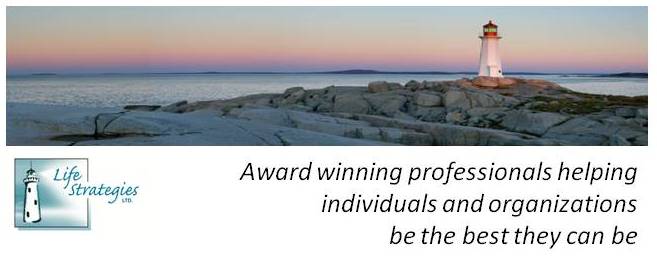Earlier this year our team had the opportunity to meet several internationally trained professionals (ITPs), from a wide range of countries and representing a number of different professional occupations. All of these individuals had made the decision to immigrate to Canada and were committed to staying here, putting down roots, and raising their families. All, however, were frustrated by the many challenges in establishing their pre-immigration careers. These included challenges with regulatory bodies and professional associations, lack of recognition of previous experience and education, language barriers, and adjusting to Canadian workplace practices.
Many of the ITPs find themselves working in “survival jobs” and feeling quite underutilized . . . doctors washing dishes, engineers working as janitors, bankers/accountants driving cabs. Reitz (2011)[1] called this the “taxi driver syndrome,” estimating that this underutilization of immigrants is costing the Canadian economy $3 billion every year. We attract the world’s best and brightest, then leave them to navigate our complex system with little to no assistance – Lamontage (2003)[2] called this seduction and abandonment.
Despite the numerous challenges, all of these professionals had good things to say about the services they received from various community-based agencies. They’d had settlement assistance, been referred to language classes, taken workshops in Canadian workplace culture, and had support in developing their resumes, cover letters, and interview skills. They were very thankful for the assistance offered, most stating that the Career Development Practitioners (CDPs) who assisted them were very nice and helpful. However, these professionals also raised some issues that were somewhat concerning to us, especially given our role as educators.
These issues focused on two key elements. First, it was felt that CDPs did not truly understand the complexities of the foreign credential recognition process, resulting in an inability to help ITPs navigate these systems or connect them with professionals who could offer assistance. Secondly, CDPs seemed to make rather bizarre recommendations around what work these highly skilled professionals should or could do – an economist, with a PhD, told to apply as a customer service rep in a bank; a structural engineer was told she should take a course in MS-Office, despite her having superior skills using the entire MS-Office suite.
ITPs face unique challenges and consequently need specialized solutions. We recommend CDPs develop their understanding of the foreign credential recognition process, foster strategic relationships with professional associations and certifying bodies, and learn from the successes of ITPs who’ve navigated to successful employment in their pre-landing sector. Further, CDPs should pause to explore the unique skills and qualifications ITPs bring; rather than assuming an engineer would need MS-Office training, discuss the advantages of participating in a Canadian education program and explore, with your client, what might “fit” best.
[1] Reitz, J. G. (2011). Taxi driver syndrome: Behind-the-scenes immigration changes are
creating new problems on top of old ones. Retrieved from http://reviewcanada.ca/essays/2011/02/01/taxi-driver-syndrome/
[2] Lamontagne, F. (2003). Workers educated abroad:
Seduction and abandonment. Food for
Thought, 10. Retrieved from http://www.crccanada.org/crc/files/Communication_Strategy_No.10_Lamontagne718_2.pdf





4 comments:
Thanks for a great article, Deirdre!
Do you have any suggestions for how a Career Practitioner can develop a better understanding of the complexities - and solutions - to the foreign credential recognition process? Or is it better to follow the haphazard process that we should now caution our clients against?
When there is a simple solution to this problem, I will happily learn all about it and share it with my clients. So far, however, the waters are murky on this issue and there is no "one-size-fits-all" solution that I have discovered.
Sincerely,
Pete Mackenzie
Kelowna, BC
Hey Peter! Thanks for taking the time to comment.
As you likely know, there is no simple solution to this problem. Sometimes I'd actually say there is no solution but that seems quite pessimistic!
I'd love to see CDPs connecting, and building a strong relationship, with the credentialing bodies. This way CDPs have "someone they can call" to ask questions. In our research we often discovered that individuals at the credentialing body also struggled to find 'stuff' on their websites; picking up the phone, knowing someone will take your call, is a far better solution.
We learned quite a bit about various professions, and the various ways FCR can happen...which countries had agreements to make things easier, etc. but we learned that by connecting with the associations that governed the credential.
Hope that helps - and makes sense. Happy to chat further.
Thanks Deirdre!
I would love to get together to chat about these issues and perhaps find ways to develop stronger links between CDPs and credentialing bodies.
Currently, less than 10% of the clients I work with are ITPs, but among them are doctors, engineers, nurses, PhD scientists, IT professionals and management professionals, each of whom seem to have a different credential recognition process.
Based on cost-benefit, it's unlikely that most practitioners, unless they specialize in working with ITPs, will get out ahead of all credential recognition processes. Perhaps one solution would be to create a Knowledge Clearinghouse at www.cfeebc.org?
I look forward to speaking with you.
Feel free to email or phone me directly Peter. Would definitely love to continue the discussion. A Knowledge Clearinghouse as part of CfEE would be an awesome idea. Perhaps connect with them to plant the seed.
Post a Comment